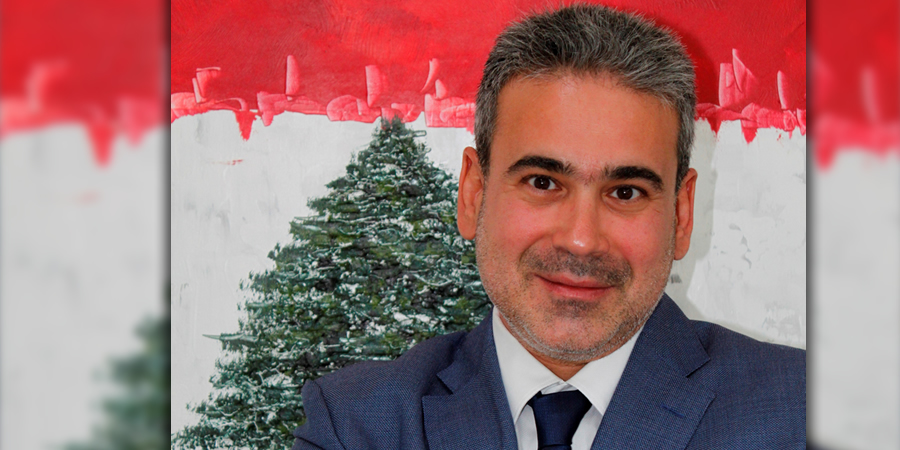Quality Telecom Services (QTS) provides in-class turnkey telecom services in Lebanon, where it is headquartered, and Iraq. Telecom Review spoke to Issam El Hajal, CEO, QTS, in an exclusive interview to know more about the company’s current projects.
Lebanon is currently in the midst of a national fiber rollout project and both operators are striving to deploy 5G as soon as possible. QTS CEO lauded the company’s contribution to the fiber project’s implementation and talked about its role in 5G deployment in Lebanon which he considers will have a transformative impact on the whole industry.
First of all, what are the main services that QTS offers to the markets where it is present?
We provide turnkey telecom services for operators directly or for suppliers depending on the business model or the region where we’re operating. Our end-to-end portfolio covers site acquisition, site building, tower erection, hardware commissioning and installation as well as optimization. We provide fully optimized, on air sites. We also take care of the network’s optimization whether at the level of backbone, transmission or access network. In addition, we supply electromechanical equipment, generators, towers and power solutions either through the telco suppliers or directly to operators.
How do you assist operators and vendors?
Our role depends on the business model in place. For example, in Lebanon, the operator undertakes the civil works. We provide the electromechanical equipment, build the site, erect the tower and prepare it for the telco installation. We also work with telco suppliers and build the telco equipment, in addition to offering managed services. This outsourcing model helps both operators and suppliers in reducing their OPEX, waving them from building own teams and increasing their headcounts.
You’re also active in the field of FTTx. Can you tell us more about that?
We’re collaborating with the Lebanese government and several other companies to deploy fiber the soonest possible and install it in all buildings across the country. Fiber is very promising in terms of speeds and we’re deploying tireless efforts for it to reach the whole Lebanese territory.
Even though we’re facing many challenges, notably when it comes to the infrastructure and approvals to proceed, the FTTx project is underway in Lebanon and we’re highly contributing to the implementation thanks to the expertise we gained in Iraq and Africa.
Fiber deployment in Lebanon constitutes a massive leap forward and will definitely boost the economy. End users can benefit from the low latency it provides to enjoy a fast video streaming experience while businesses will also leverage it to improve productivity.
What role are you playing in the deployment of 5G in Lebanon?
We are currently working with Lebanese operators on optimization projects, supporting in the post rollout activities and deploying the expertise we acquired over the years. We also organized workshops in Lebanon where experts from our sister company based in the US shared its 5G expertise to make sure that all needed trainings and new techniques are well acquired by our teams.
Currently, while working on the optimization project, we are preparing the network with Alfa and the suppliers for 5G. We built and finalized the integration of Alfa’s 5G pilot sites. In terms of radio network, we also brought our experts from the US to train our local engineers. So, we’re ready now for 5G deployment in Lebanon which is set to bring the biggest change ever in the history of the telecoms industry.
How do you think the industry should cope with the change that will be brought about by 5G?
The way we used to do business changed tremendously and hardware has relatively lost its importance to software. Suppliers are now outsourcing the hardware and then implementing their own software. Jobs are disappearing and new ones are created. With 5G, automation and artificial intelligence, more jobs will disappear so we should move to the software and train our work force on the new technologies.
Do you plan on expanding to other markets? What are your future plans?
Our business is very challenging because investing at a small scale will not bear fruits. The Middle East is not an attractive market anymore in our field of business because the new taxes and resulting inflation have led to an increase of costs without any registered increase in sales.
We’re now considering an expansion to North Africa and we have high hopes for Iraq where we’ve been operating since 2012. Granting the 4G license will have a very positive impact and it is expected to happen soon. There is a lot of work that is yet to be done in Iraq, whether in fiber or mobile. We faced countless challenges in the country but we never left because we believe in the market and we are still investing a lot in it.
Finally, we’re very proud of our high market share in Lebanon, which is our main market, and of our collaboration with all the suppliers and both operators.










